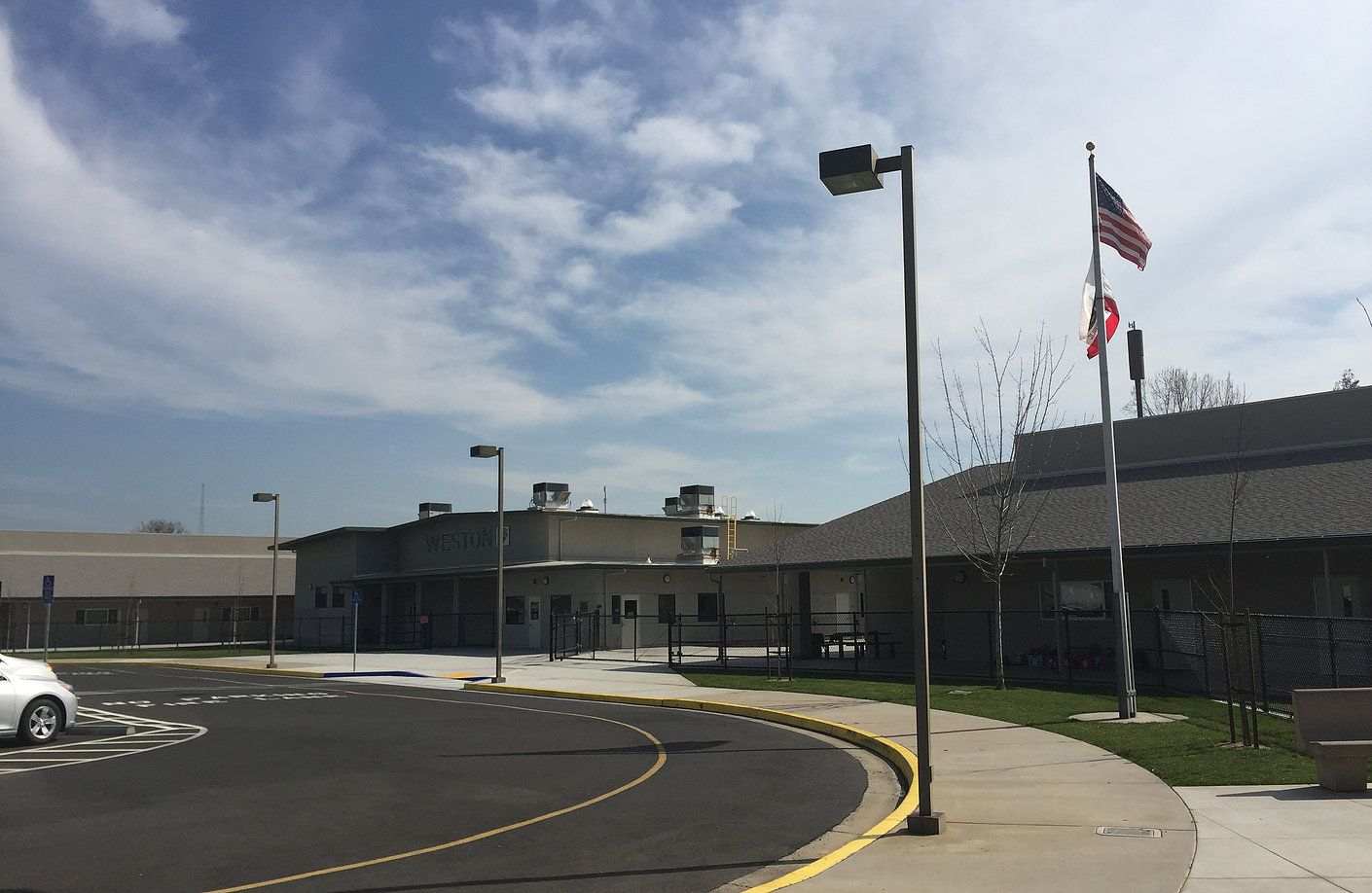
Parents in Ripon, California say a cell phone tower in a local schoolyard is to blame for the cancer diagnoses of four students in the last three years.
The tower, which is located at Weston Elementary, is the same as others scattered throughout the town. However, one parent told CBS Sacramento that its proximity to her son led to his 2017 brain cancer diagnosis.
"We had a doctor tell us that it's 100 percent environmental, the kind of tumor that he has," Monica Ferrulli said in the interview. "It's indescribable, it's really tough."
Ferrulli's son Mason was the second child to be diagnosed with cancer in just three years at the school. Mason walked by the cell phone tower daily.
She also told the Modesto Bee that when questioned, the school district cited an "obsolete American Cancer Society study" as the reasoning for keeping the tower in its current location. Ferrulli told the newspaper that parents will continue to fight and keep their children out of the school.
On Tuesday, more than 200 children were absent from Weston Elementary as a form of protest. Tuesday night, the children's parents attended a meeting of the Ripon Unified School District.
Richard Rex, whose family lives across the street from Weston School, said a bump appeared on his 11-year-old son's abdomen a month ago. He said his son's classroom is near the tower.
Rex's son was taken to doctors for examinations and tests that found a tumor wrapped around his liver. The boy now has a portal for starting cancer treatment, his parents told the Bee.
"They said they can shrink it and cut it out. They're also talking liver transplant. It is very scary," Rex said.
In a statement to Newsweek from RUSD said the school board and administration "empathizes with and support these children and their families in their recovery." The statement also said independent tests shown the tower is performing within the guidelines established as safe by current government and global standards.
RUSD is 10 years into a 25-year contract with the tower's owner, Sprint, which requires it to honor the lease for this tower location.
"There is no legal contractual basis on which the district can demand the cell phone company remove the tower, however, we are working together with them to come to a mutual resolution," the statement said.
Adrienne Norton, a Sprint representative, indicated that the company's goal is to provide wireless service to Ripon residents.
"When it comes to the deployment of network infrastructure, we always strive to achieve a win/win process with local municipalities and residents," Norton wrote.
The school district is working with Sprint to address the concerns of the community, the statement said.
A group of parents were unconvinced by the district's reassurances and hired Eric Windheim, an electromagnetic radiation specialist.
"I wouldn't send my kids there at all, it absolutely is dangerous," Windheim said in an interview with CBS Sacramento. "Children are still developing and their cells are still being divided. It's the worst possible time in their life to be exposed."
The Cochran Firm of Los Angeles has been hired to look at health effects of the cell tower and water contamination as a possible source.
According to the American Cancer Society, very few studies have focused on cell phone towers and the risk of cancer connected to them.
In one study, researchers compared a group of more than 2,600 children with cancer to a group of similar children without cancer. The results indicated that children who lived in a town with "higher than average RF radiation" from cell towers had a slightly increased chance of developing cancer. However, there was no limit to the type of cancer found in those children.
This study estimated the children's possible exposure based on the number of towers in their town and how strong the signals were from the towers. It did not look at actual exposure of any individual child based on how far their home or school was from a tower.
"This limitation reduces confidence in the results of the study," the American Cancer Society article said.
Uncommon Knowledge
Newsweek is committed to challenging conventional wisdom and finding connections in the search for common ground.
Newsweek is committed to challenging conventional wisdom and finding connections in the search for common ground.
About the writer
To read how Newsweek uses AI as a newsroom tool, Click here.








